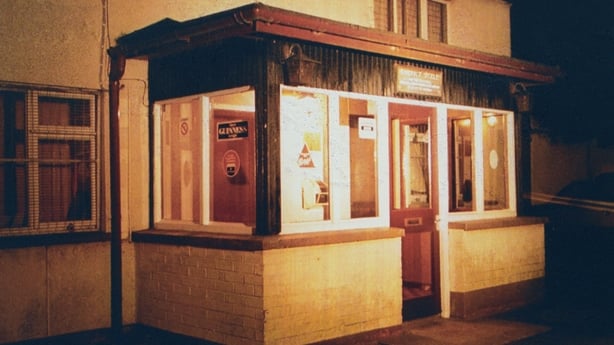A tribunal hearing into alleged police surveillance of two Belfast journalists has heard from a former senior police officer who was involved in an investigation into the leaking of a secret document to both men.
Trevor Birney and Barry McCaffrey were arrested in 2018, following the broadcast of their television documentary investigation into a loyalist attack at a pub in Loughinisland, Co Down, during the troubles.
The documentary was based on an unpublished report by the Police Ombudsman's Office, which led to a police investigation into how the journalists had obtained the report.
Mr Birney and Mr McCaffrey were later cleared of any wrongdoing.
Appearing before the Investigatory Powers Tribunal in London today, former senior investigating officer with Durham Constabulary, Darren Ellis, said that he didn't "think it was right" that the documentary contained "secret documents".
Durham Constabulary carried out the investigation into how the journalists obtained the report on behalf of the PSNI.
Mr Ellis, who is now retired, insisted that the investigation was "driven by ethics".
However, the two journalists, Trevor Birney and Barry McCaffrey, had previously claimed police had used covert methods to try and establish their source.
This included extensive covert surveillance of a suspect in the days after their arrest in the hope that they would set up a meeting to discuss what had happened.
Today at the tribunal, Mr Ellis denied that this was the case.
The Lawyer representing both journalists, Ben Jaffey KC, also suggested that Mr Ellis tried to persuade the Law Society of Northern Ireland, which regulates solicitors, to "take action" against Mr Birney and Mr McCaffrey's lawyers.
Darren Ellis denied this, adding that he was just expressing concern.
The Tribunal is due to continue until Friday.
A written judgement will be given at a later date.

The Investigatory Powers Tribunal is a body which adjudicates whether the police and security services have abused powers to gather information covertly.
The PSNI, Durham Constabulary, the Metropolitan Police, MI5 and the UK's intelligence gathering organisation, GCHQ, are all among the respondents.
The tribunal investigated the case in private for several years and has uncovered evidence that Mr McCaffrey was also being monitored in respect of other stories he had done on the PSNI dating back to 2013.
Speaking this morning in London, Mr Birney said that the "stakes are high" because journalists across the UK are looking to see how the tribunal rules.
"We believe that already, through disclosure, we've learned a huge amount about the operation that was against Barry and against so many other journalists in Belfast and we're hoping to hear more in the days ahead".
This case has caused concern about the monitoring of journalists and lawyers by the police. At least one other journalist is believed to have been the target of police surveillance.
Vincent Kearney is now Northern Editor for RTÉ News, but at the time he was being monitored he was working as an investigative reporter for BBC Northern Ireland's Spotlight current affairs strand.
Speaking outside the Royal Courts of Justice in London, Seamus Dooley, Irish Secretary of the National Union of Journalists, said that the hearing would have "huge implications" for many other journalists.
"This isn't just about two people. This is actually about the practice of journalism in a democracy," he said.
Amnesty International's Northern Ireland director Patrick Corrigan said the police had serious questions to answer about the secret surveillance of journalists.
"The evidence speaks for itself. There's a highly disturbing pattern of covert surveillance of journalists and others and a cavalier approach by the police to the freedom of the press."
The issue has prompted a much greater focus on the extent of such surveillance activity.
A report provided by the PSNI chief constable to the Northern Ireland Policing Board revealed that between 2011 and 2024 there had been 10 requests to obtain journalists' phone data with a view to covertly identifying their sources.
In the same period there had been 823 requests for phone data of lawyers or reporters who were considered to be "victims, suspects or witnesses to crime".







